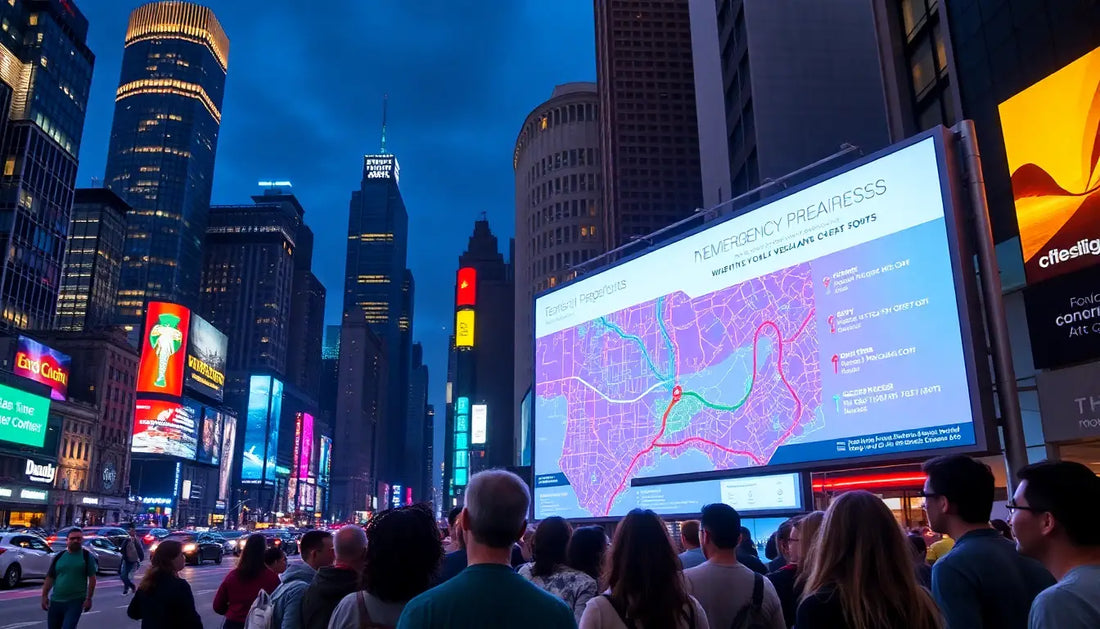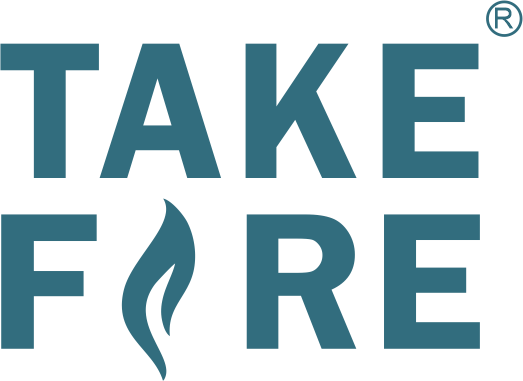
Urban Emergency Preparedness: Staying Safe in the Concrete Jungle
TF AdventureIn today's fast-paced, ever-evolving urban landscape, the need for comprehensive emergency preparedness has never been more crucial. As city dwellers, we often find ourselves surrounded by the comforts of modern infrastructure, yet vulnerable to the unpredictable forces of nature and unforeseen crises. At TF Adventure, we believe that empowering individuals and communities with the knowledge and tools to navigate emergencies is not only a necessity, but a moral imperative.
Disaster Kits: Your First Line of Defense
When disaster strikes, the ability to respond quickly and effectively can mean the difference between life and death. That's why the foundation of urban emergency preparedness lies in the creation of a well-stocked disaster kit. This essential collection of supplies should include, but not be limited to:
- Water and non-perishable food for at least 72 hours
- Flashlights, batteries, and a portable radio
- First aid kit and any necessary medications
- Warm clothing, sturdy shoes, and basic toiletries
- Cash, important documents, and a list of emergency contacts
- Tools for basic repairs and self-defense
By assembling and regularly maintaining these kits, you'll ensure that you and your loved ones are prepared to weather the storm, no matter what challenges arise.
Evacuation Plans: Mapping Your Escape Route
In the event of a major emergency, the ability to evacuate quickly and safely is paramount. That's why developing a comprehensive evacuation plan is a crucial step in urban emergency preparedness. Start by identifying multiple exit routes from your home, workplace, and other frequented locations. Familiarize yourself with the layout of your building, and be aware of the location of emergency exits, stairwells, and designated safe zones.
It's also essential to have a designated meeting point outside of the affected area, where you and your family can regroup and assess the situation. Keep in mind that during a crisis, communication networks may be disrupted, so it's wise to have a non-digital backup plan for staying in touch.
Earthquake Safety: Bracing for the Unexpected
As urban centers continue to grow, the risk of earthquake-related disasters has become a pressing concern. In earthquake-prone regions, it's crucial to take proactive measures to safeguard your home and workplace. This includes securing heavy furniture and appliances, identifying safe spots within each room, and practicing drop, cover, and hold drills with your family.
Additionally, it's important to be aware of the location of your building's main utility shut-off valves and to know how to turn off gas, electricity, and water in the event of an earthquake. By taking these precautions, you'll be better equipped to protect yourself and your loved ones when the ground starts to shake.
Flood Response: Navigating Rising Waters
Urban areas are particularly vulnerable to the devastating effects of flooding, whether caused by heavy rainfall, storm surges, or infrastructure failures. To prepare for this eventuality, it's essential to understand the flood risk in your local area and to develop a plan of action.
This may include identifying high-ground evacuation routes, securing your home against water intrusion, and having a supply of sandbags or other flood-mitigation tools on hand. It's also crucial to stay informed about weather patterns and heed any emergency warnings or evacuation orders issued by local authorities.
Building Collapse: Surviving the Unthinkable
In the unfortunate event of a building collapse, the ability to react quickly and decisively can mean the difference between life and death. That's why it's essential to familiarize yourself with the basic principles of search and rescue, as well as the proper techniques for debris removal and first aid.
At TF Adventure, we offer comprehensive training programs that equip individuals with the skills and knowledge necessary to navigate these high-stress situations. From learning how to identify structural weaknesses to mastering the art of emergency triage, our courses empower urban residents to become active participants in their own safety and the safety of their communities.
Fire Prevention: Extinguishing the Threat
Fires pose a constant threat in densely populated urban areas, where the proximity of buildings and the presence of flammable materials can quickly turn a small spark into a raging inferno. To mitigate this risk, it's crucial to implement robust fire prevention measures in your home and workplace.
This includes regularly inspecting and maintaining smoke detectors, keeping fire extinguishers readily available, and ensuring that all emergency exits and stairwells are clear and accessible. It's also important to educate yourself and your family on the proper techniques for fire suppression and evacuation, as well as the importance of having a designated meeting point outside the affected area.
Power Outages: Illuminating the Path Forward
In an age of ever-increasing reliance on technology, the prospect of a widespread power outage can be a daunting one. However, with the right preparation and mindset, you can ensure that your household remains resilient in the face of such disruptions.
Start by investing in a reliable backup power source, such as a portable generator or a solar-powered charging system. Additionally, keep a supply of candles, flashlights, and batteries on hand, and familiarize yourself with the location of your home's main circuit breakers. By taking these proactive steps, you'll be better equipped to maintain essential functions and stay connected during a blackout.
Water Contamination: Purifying the Source
Access to clean, potable water is a fundamental human need, and in urban environments, the risk of water contamination is ever-present. Whether due to infrastructure failures, natural disasters, or intentional acts, the disruption of water supplies can have devastating consequences.
To prepare for such scenarios, it's crucial to have a plan in place for water purification and storage. This may include investing in water filtration systems, maintaining a supply of bottled water, and learning the proper techniques for disinfecting and treating contaminated sources. By taking these precautions, you'll ensure that you and your loved ones have access to the clean water necessary for survival.
First Aid Basics: Providing Lifesaving Care
In the aftermath of an emergency, the ability to provide immediate, effective first aid can be the difference between life and death. That's why it's essential for urban residents to familiarize themselves with the fundamentals of emergency medical response.
At TF Adventure, we offer comprehensive first aid training programs that cover a wide range of topics, from wound care and CPR to the management of traumatic injuries and medical emergencies. By equipping individuals with these essential skills, we empower them to become active participants in the safety and well-being of their communities.
Community Networks: Strengthening the Bonds of Resilience
In times of crisis, the strength of a community's bonds can be the key to its survival. That's why building and maintaining strong community networks is a crucial component of urban emergency preparedness.
By fostering connections with your neighbors, local organizations, and emergency response teams, you'll be better equipped to share information, coordinate relief efforts, and provide mutual aid during times of need. This may include establishing neighborhood watch programs, organizing emergency response drills, and identifying vulnerable individuals who may require additional assistance.
Public Shelters: Seeking Refuge in the Storm
When disaster strikes, the availability of safe, accessible public shelters can be a lifeline for those in need. It's essential to familiarize yourself with the location and capabilities of these designated emergency facilities, as well as the protocols for accessing them.
In the event of an evacuation, be prepared to provide essential information about your household, such as the number of family members, any special needs, and the presence of pets. By understanding the resources and services available at public shelters, you'll be better equipped to navigate the challenges of an emergency situation and ensure the safety of your loved ones.
Communication Strategies: Staying Connected in Crisis
In the midst of a crisis, the ability to communicate effectively can be a critical factor in ensuring your safety and the safety of your loved ones. That's why it's essential to have a comprehensive communication plan in place, one that accounts for the potential disruption of traditional communication channels.
This may include identifying alternative means of communication, such as two-way radios or messaging apps that operate independently of cellular networks. It's also crucial to maintain a list of emergency contacts, both local and out-of-state, and to establish a designated meeting point or check-in procedure in case you become separated.
By embracing these principles of urban emergency preparedness, you'll not only safeguard your own well-being, but you'll also contribute to the resilience and strength of your community as a whole. At TF Adventure, we are committed to empowering individuals and families with the knowledge and tools necessary to navigate the unpredictable challenges of the modern urban landscape. Join us in our mission to build a safer, more prepared world, one city at a time.

